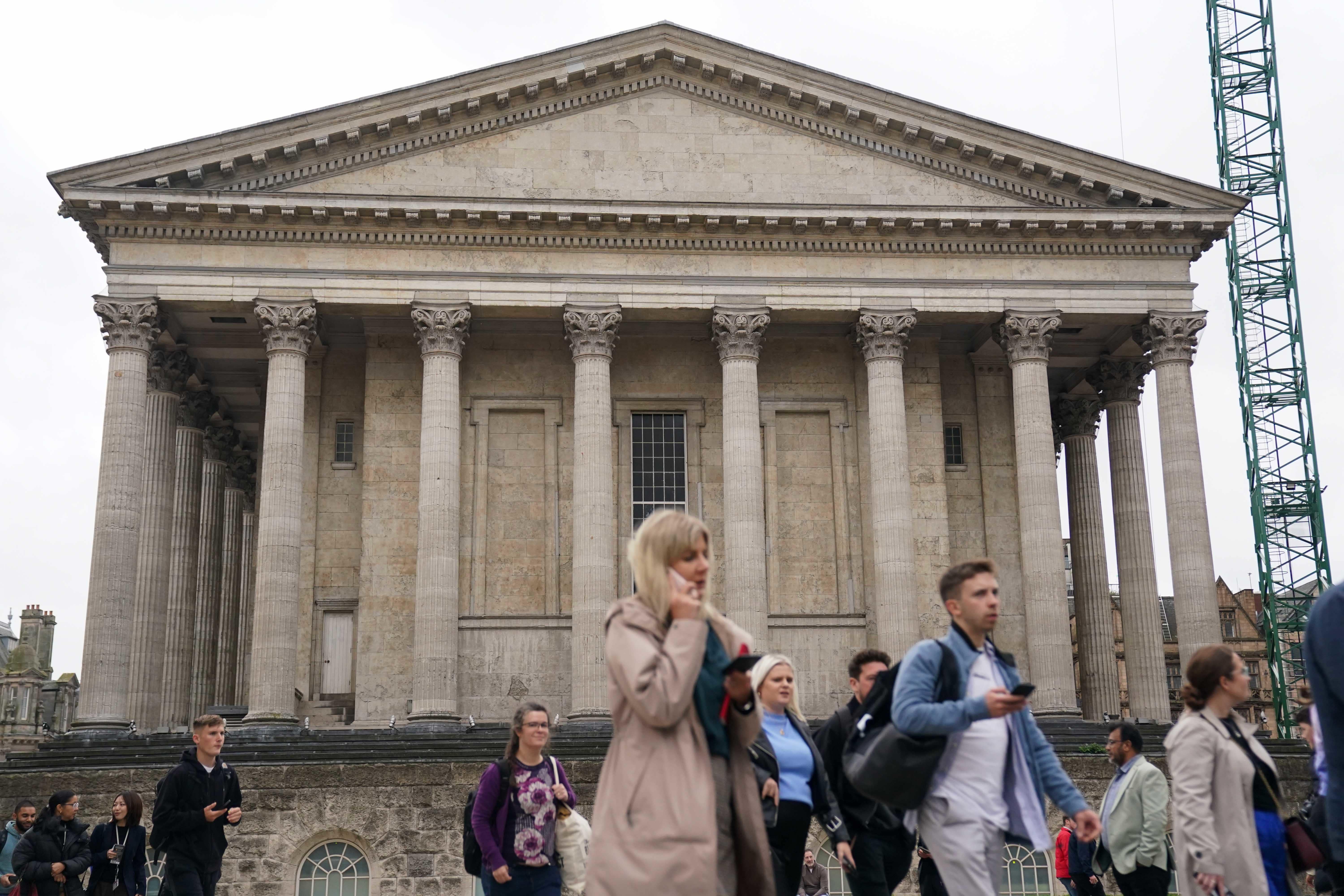Birmingham City Council requests huge bailout as savings plans revealed
Budget proposals reveal big cuts across frontline services including social care, support for families with children and refuse collections.

Your support helps us to tell the story
From reproductive rights to climate change to Big Tech, The Independent is on the ground when the story is developing. Whether it's investigating the financials of Elon Musk's pro-Trump PAC or producing our latest documentary, 'The A Word', which shines a light on the American women fighting for reproductive rights, we know how important it is to parse out the facts from the messaging.
At such a critical moment in US history, we need reporters on the ground. Your donation allows us to keep sending journalists to speak to both sides of the story.
The Independent is trusted by Americans across the entire political spectrum. And unlike many other quality news outlets, we choose not to lock Americans out of our reporting and analysis with paywalls. We believe quality journalism should be available to everyone, paid for by those who can afford it.
Your support makes all the difference.Birmingham City Council has requested a £1.25 billion bailout from the Government as it bids to recover from declaring effective bankruptcy, documents show.
Budget papers published overnight also confirm the council is planning to raise council tax by 9.99% this year and next, cut the cost of services by £367 million and initiate redundancies costing £100 million.
The huge “exceptional financial support” is considered crucial given the scale of the council’s financial distress, but commissioners led by Max Caller warned the money “is really nothing more than a loan from the government that must be paid back through asset sales”.
The report says the support will cover equal pay liabilities over the previous three years estimated at £815 million and should enable the council to set a balanced budget up to 2025/26.
Without the additional funding, the council does not have cash reserves to cover costs and “would not be a going concern”, it adds.
Birmingham intends to fund the support “loan” through the use of capital receipts from planned asset sales totalling £500 million by the end of 2024/25, with the programme expected to continue for three years.
The 9.99% council tax increase will see the average annual bill for a Band D property in the city rise from £1,630 to £1,793 in April, excluding precepts to be applied by police commissioners and the fire authority.
However, residents are facing significant reductions in the provision of frontline services across the city.
The proposed savings programme includes a spending reduction for adult social care of £77 million over two years, with planned reviews of day centres, care centres and services supporting adults to leave hospital and regain their independence. Care packages will also be reviewed.
The budget for services supporting children and families will be reduced by £120 million over the period.
This includes cuts to early help, assisted transport and support for children not in education, employment or training.
Other measures include dimming street lights to save £900,000, reducing spending on highway maintenance by £12 million and moving to fortnightly refuse collections to save £4 million a year.
Financial mismanagement is deep rooted within Birmingham City Council
Bereavement fees will also be increased and cultural grants will be cut off under the plans.
Birmingham City Council issued two section 114 notices declaring effective bankruptcy in September 2023.
In a report published alongside the budget proposals, Fiona Greenway, the council’s director of finance and Section 151 Officer, said: “Financial mismanagement is deep-rooted within Birmingham City Council, with overreliance on the use of reserves, growing liabilities, imprudent estimates in relation to financial planning, a historical inability to deliver savings, and a number of open prior year accounts back to 2020.”
She added the flawed implementation of the digital enterprise planning system “eroded the fundamentals of prudent financial management, resulting in a lack of financial clarity in decision making”.
The council is in an extremely serious financial position as a result of the past decisions it has taken, both in deciding to take specific actions and failing to recognise and take proper corrective action
In his introduction to the report, Mr Caller said: “The council is in an extremely serious financial position as a result of the past decisions it has taken, both in deciding to take specific actions and failing to recognise and take proper corrective action.
“All local authorities are facing significant pressure in service delivery costs and the failures of the past have eroded the council’s room for manoeuvre.
“There is a narrow path to financial sustainability that will require both discipline and pace from both members and officers.”
The number of councils which have requested exceptional financial support is not known because the Department for Levelling Up, Housing and Communities does not make them public.
However, the number of councils is believed to be in double figures.
John Cotton, Labour leader of Birmingham City Council, said: “Birmingham City Council is facing a number of financial challenges and I want to apologise unreservedly for both the significant spending reductions and this year’s substantial council tax increase.
“We have no alternative than to face these challenges head on.
“And we will do whatever is necessary to put the council back on a sound financial footing.
“Our situation has been made much worse by a national crisis in local government finance.
“A combination of austerity and underfunding, Birmingham has lost over £1 billion in funding since 2011, added to a rising demand for services and inflation mean that, across the country local authorities are facing some of the biggest budget challenges in living memory.”